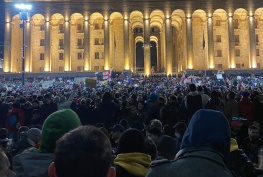Report Finds Journalist Killings Go Unsolved
Published in The Wall Street Journal on May 2, 2013
By Khalid Khattak
Governments around the world have failed to investigate and prosecute the killing of hundreds of journalists in recent years, a report by a nonprofit group said Thursday.
Nearly 1,000 journalists were killed in the two decades since 1992, more than two-thirds of them in homicide cases, said the Committee to Protect Journalists, a figure that counters the assumption that most reporters die in wartime crossfire.
Just as striking is the clearance rate for the killings: Of 364 killings in the past 10 years, only 15 of them have been solved, the CPJ said.
“An additional 20 are partly solved—that is, some suspects have been convicted but others remain at large,” said Elisabeth Witchel, a consultant to the CPJ. “In most cases…the person believed to have ordered the killing is rarely prosecuted.”
Since 2008, the CPJ has published an “Impunity Index,” which tracks how often killings are solved by governments and ranks countries on the basis of unsolved journalist murders, as a percentage of each country’s population. The CPJ defines murder as a deliberate attack against a specific journalist in relation to the victim’s work.
This year, a rise crimes against the press pushed Nigeria onto the CPJ’s 2013 index for the first time. With five unsolved murders since 2009, the African country now ranks 11th among the 12 most dangerous countries for journalists to work in.
The index, released on the eve of the United Nations-designated World Press Freedom Day, also highlights ongoing dangers in countries such as Somalia, Pakistan, and Brazil, which have been on the CPJ list in the past.
Iraq tops the 2013 index, as it did the previous year, followed by Somalia, the Philippines, Sri Lanka, Colombia, Afghanistan, Mexico, Pakistan, Russia, Brazil, Nigeria and India.
There were 70 reporters killed world-wide in 2012, and 17 so far in 2013, the CPJ said.
Many countries have the added problem of witness intimidation and retribution, the CPJ said. In Pakistan and the Philippines, at least nine witnesses and people connected to journalist murder investigations have been killed or died in suspicious circumstances in the past 10 years.
“In countries where authorities fail to deliver justice in the killing of journalists, the result is more killings, while journalists try to survive by exercising self-censorship,” said CPJ Executive Director Joel Simon.




